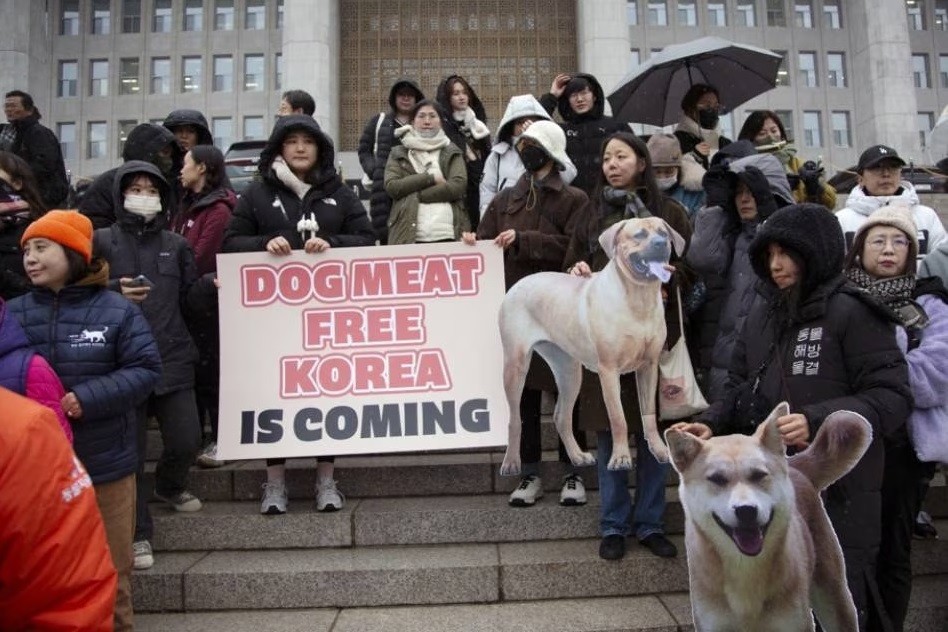09/01/2024
09/01/2024

SOUTH KOREA, Jan 9: South Korea's parliament passed a landmark bill on Tuesday, outlawing the breeding and slaughter of dogs for consumption, putting an end to the contentious practice of consuming dog meat after years of national debate. The bipartisan support for the bill signifies a significant shift in attitudes toward dog consumption in South Korea amid the country's rapid industrialization.
Under the new law, the distribution and sale of food products containing dog ingredients will be banned. However, individuals consuming dog meat or related products will not face punishment, focusing enforcement on those directly involved in the industry, such as dog farmers and sellers. Violators, including those slaughtering dogs for food, could face up to three years in prison or fines of up to 30 million Korean won (approximately $23,000).
The legislation grants a three-year grace period for dog farmers, dog meat restaurants, and other industry workers to transition to different businesses. Local governments are tasked with providing support to facilitate a stable transition.
The bill awaits final approval from President Yoon Suk Yeol, who has received support from both ruling and opposition parties. First Lady Kim Keon Hee, an advocate for animal protection, has expressed vocal support for the legislation.
South Korea has a history of dog meat consumption, traditionally seen as a means to combat summer heat and as an affordable protein source during times of higher poverty rates. The practice, however, has faced criticism from animal rights activists, and the number of South Koreans consuming dog meat has declined, particularly among younger, urban demographics.
The legislation has encountered resistance from dog farmers and business owners who argue it will impact their livelihoods and traditions. Despite this, proponents of the bill believe the grace period and relief measures will aid dog farmers in transitioning away from the industry, aligning with changing societal perceptions of animal welfare and food consumption.


